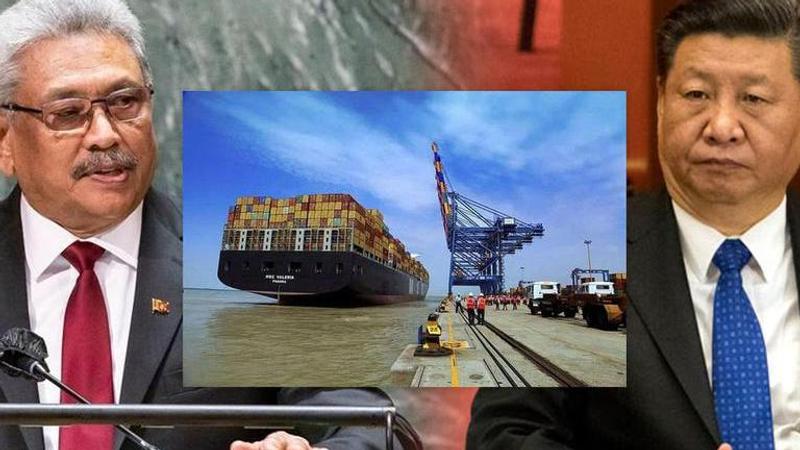Published 09:33 IST, January 13th 2022
China's 'debt-trap diplomacy' fuels Sri Lanka's foreign exchange crisis: Report
Sri Lanka is currently in a pit of severe foreign exchange crisis, which has been increased manifold by its inability to meet the monetary obligations to China.

Advertisement
Sri Lanka is currently witnessing a severe foreign exchange crisis, which has been increased manifold by its inability to meet the monetary obligations to China on several projects, the Singapore Post reported. The situation further deteriorated as Sri Lanka failed to meet the maturity dates of the International Sovereign Bonds (ISBx) debt, amounting to over $8 billion in projects. The initiatives included the Hambantota Port that forced Colombo to incur losses instead of generating revenue.
In addition, the Belt and Road Initiative by China also allowed Sri Lanka to borrow commercial loans on infrastructure projects without strict conditionality, thus, luring the island country into massive forex debt. It is to mention that Beijing's Belt and Road Initiative is a long-term plan to fund and build infrastructure linking China to the rest of the world but the project is dubbed as a "debt-trap diplomacy" by the US for all developing and poorer nations.
Sri Lanka has suffered a lack of long-term finance in manufacturing and infrastructure, according to a United Nations Conference on Trade and Development (UNCTAD) report from October 2021, analysing Sri Lanka's debt pattern. Compounding it with a liberal trade regime, this had led to a balance of payment crisis, a drop in currency rates, and maximum reliance on foreign loans. As per BBC, Sri Lanka is currently expected to repay about $4.5 billion in debt, including $500 million to ISB, which matures on January 18.
Crisis-hit Sri Lanka requests China to restructure debt repayments
As per the Singapore Post, the crisis-hit Sri Lankan government is highly dependent on China for "all kinds of support." In the last decade, the Xi Jinping government has lent President Gotbaya Rajapaksa's tenure over $5 billion for a myriad of projects, including roads and ports. In recent, Beijing has pressurised Colombo to pay back its due along with compensation in an out-of-court settlement, which amounts to some $7 million. Last Sunday, President Rajapaksa met with Chinese Foreign Minister Wang Yi, requesting him to restructure its debt repayment system as a part of efforts to help the South Asian country to stay afloat in its grim financial situation.
"The president pointed out that it would be a great relief to the country for tension could be paid on restructuring the debt-free payments as a solution to the economic crisis that has arisen in the face of the COVID-19 pandemic," President Rajapaksa's office said in a statement, as quoted by BBC.
In return, Sri Lanka promised to allow Chinese tourists on condition that they abide by the COVID-related restrictions. It is pertinent to mention that Sri Lanka's revenue is largely dependent on tourism that suffered a major blow after the COVID-19 pandemic impacted global travel. Meanwhile, last month Sri Lanka has announced a repayment to Iran for past oil imports, although the paying off is in tea. $5 million worth of tea will be sent to Iran each month until it clears $251 million debt.
(Image: AP/PTI)
Updated 09:33 IST, January 13th 2022




